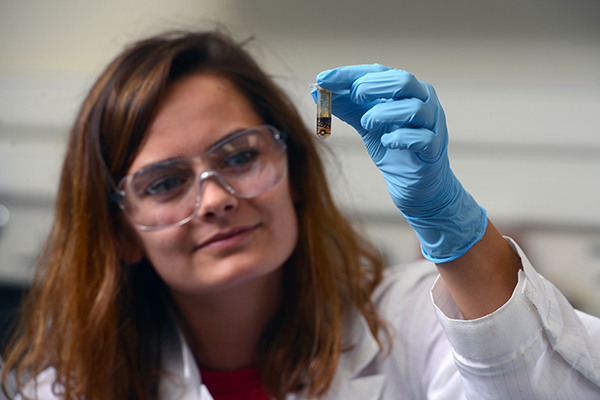Do you like using science to make the world a better place? Consider UWF's environmental science program, which combines natural science and resource management in a multidisciplinary approach. Help safeguard our natural world while preparing for a career in an expanding profession.
Why Study Environmental Science at UWF?
We offer small classes, one-on-one interaction with faculty and hands-on experiences. Our program provides a broad knowledge base and many electives. You will learn the methods and techniques used by environmental professionals, including aerial photography, remote sensing, geographic information systems (GIS), statistics, field sampling and laboratory analyses.
We will prepare you for a fulfilling career that can include everything from crunching numbers, to gathering soil, sediment and water samples in the field, to interviewing community residents, to meeting with lawmakers to influence policy.
What You Will Learn
Environmental Science students learn to analyze physical and socioeconomic environments and to reach decisions concerning environmental use and protection. By combining an understanding of various basic sciences, you will be able to study the environment from an integrated perspective.
Students work with faculty on research and regularly co-author articles published in peer-reviewed journals. Students often take part in summer research and receive financial support for travel to research locations and conferences.
We offer two specialized tracks — environmental management and natural science — designed to prepare you for a career or graduate school. Classes cover topics including physical geology/earth science, weather and climate, geography of soils, introduction to GIS, coastal morphology, environmental law, urban planning, and environmental policy.
Off-campus experiences can range from a California field course in environmental geology to a Peru field course in environmental management. You will put theory into practice with an internship, research project or a collaboration with a community partner for your senior capstone. Co-ops and internships are available with a number of agencies and groups, including the Florida Department of Environmental Protection, Escambia County and the West Florida Regional Planning Council.
A minor in environmental science offers a cross-section of the departmental offerings. Our department also offers minors in environmental sustainability and geographic information science.
UWF offers classes through various delivery methods, including face-to-face, hybrid, and online. Though UWF makes every effort to provide on-campus classes in face-to-face programs, there is a possibility that some classes will have limited availability and may be offered online only. For more information, review the modes of delivery and instructional methods.
Specializations
Focus on the political, economic, cultural, legislative and ethical aspects of environmental issues and prepare for a career in environmental management and decision-making.
Receive further training in natural and applied sciences and prepare for graduate school or a career that entails extensive fieldwork and/or laboratory work.







